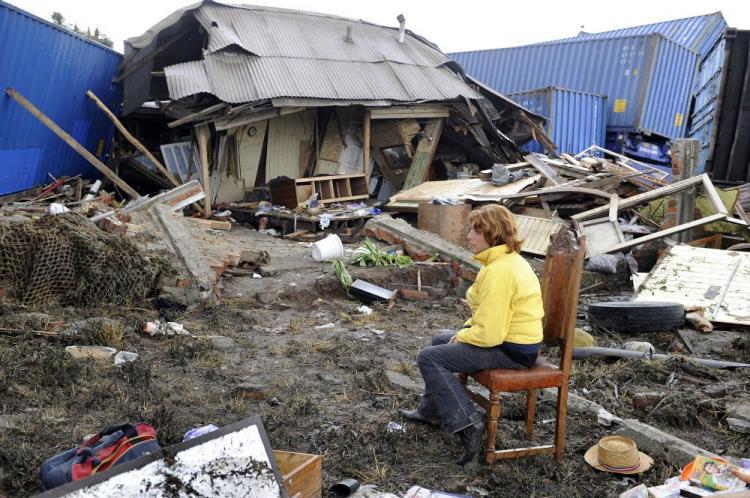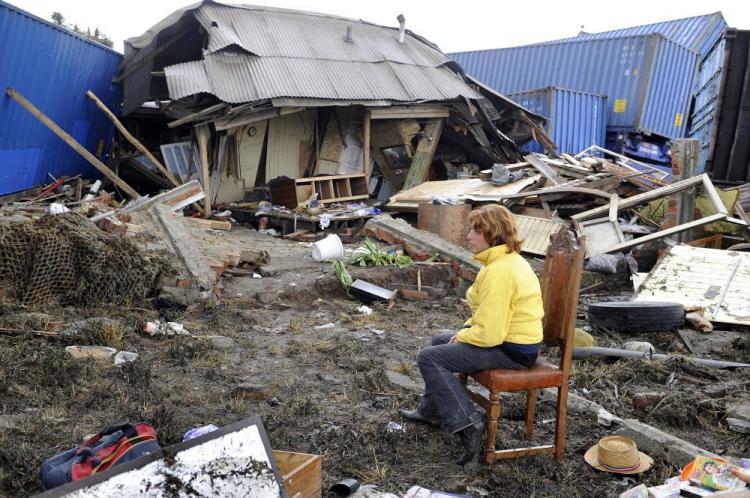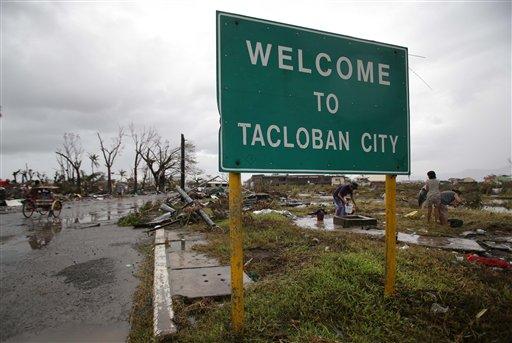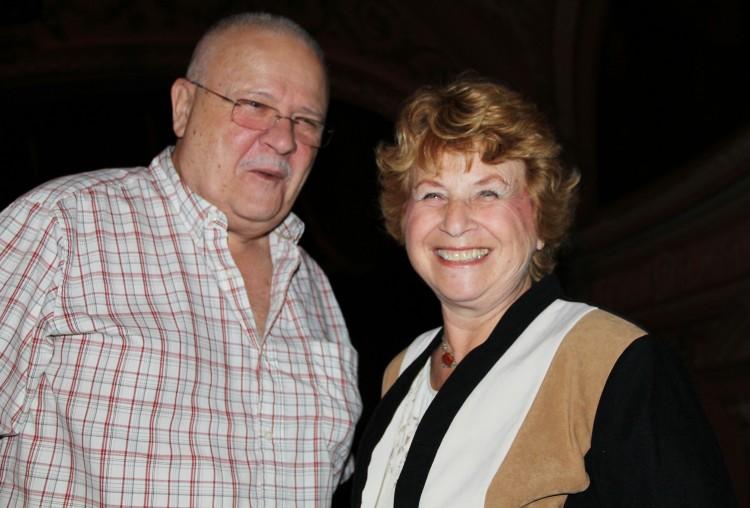Chile Reaches Out for Help as Quake’s Impact Sinks In
The Chilean administration has realized that the catastrophe is beyond their means.
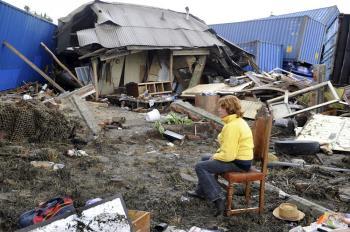
A woman guards the few belongings she has left after civil unrest and mass lootings in Talcahunao, 12.5 miles from Concepcion; in the background containers are seen scattered amid houses from a tsunami caused by the massive earthquake on Feb. 27. Daniel Garcia/AFP/Getty Images
|Updated:
